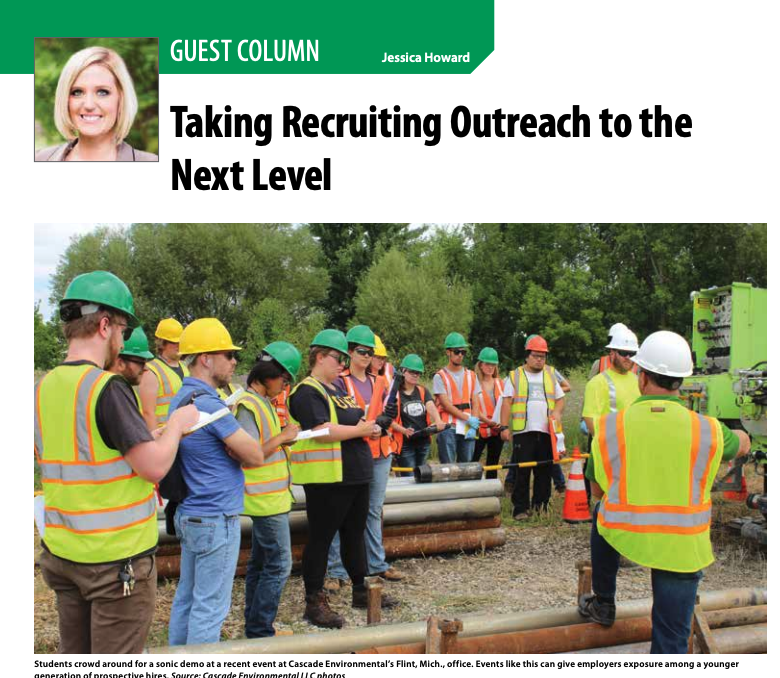How Partnerships Between Schools and the Environmental Services Industry Benefit Both
By: Cascade EnvironmentalThere are many challenges currently facing vocational and two year schools. The nature of work is changing and some career paths are evolving rapidly or disappearing altogether. To complicate matters, the next generation of skilled labor professionals have different goals and definitions of success than previous generations. In this post, I’ll explain how partnering with the environmental services industry to provide hands-on learning opportunities can help students identify opportunities that can result in a long-term and satisfying career path.
WHAT DO STUDENTS WANT?
First, let’s take a look at what we know about the next generation of workers. Speaking about Millennials—a description of adults currently ranging in age from 23 to 39—pollster John Zogby said they define success by outside impact, not just on their own personal achievements.
“Eighty-five percent want work that makes a difference and is enriching to themselves but also enriching to the world,” he explains. “And 71% want to work for a company or entity that encourages some form of global or community social responsibility. Each of those numbers is dramatically higher than the other age cohorts.”
This means younger workers are more likely to seek industries and companies that:
- Are committed to the environment
- Take a global world view
- Communicate to the public and employees
WHAT ARE SCHOOLS TASKED TO DO?
Nearly all vocational and two year schools are given specific and measurable goals they must achieve, both to address student needs and achieve funding requirements. Among others, the major tasks include:
- Identifying and facilitating certification, educational, and career pathways for their students
- Seeking new and interesting ways to further student education and engagement
- Bolstering enrollment in an environment focused on return on investment
HOW CAN PARTNERING WITH ENVIRONMENTAL SERVICES COMPANIES HELP?
The environmental services industry is an attractive one for the next generation of workers—it addresses their need for commitment to the environment and a sense of belonging to an organization that makes a positive global impact. However, the problem is that many people early in their careers aren’t even aware that environmental field services is an option. For school faculty, that presents an opportunity to meet their first major goal—to identify an additional career pathway for their students who are specializing in fields relating to machinery operation, maintenance, or transportation.
Josh Clearman, the Campus Dean at Bates Technical College, agrees. “Even with all the information they hold in their smartphones, [students] often don’t get to learn about the fantastic career opportunities like the ones at Cascade,” he said. “You don’t have to be an environmental lawyer or a social media influencer to make a positive change. You can do it every day by working with your hands and using your brains in technical fields that pay a living wage.”
Partnering with environmental services companies can also create the opportunity to achieve goal #2. For example, Cascade has worked with several schools to provide demonstrations of various types of drilling rigs, and answer student questions about their work, typical projects and thoughts about the industry.
According to the students and faculty who have attended, this type of experience has proven to be immensely engaging and spurred new thoughts about possible career paths. This type of excitement—and the careers it leads to—can ultimately help schools meet their enrollment goals as well.
Partnerships with environmental services companies provide hands-on learning and potential job opportunities in an industry that shows every sign of future growth and expansion. Cascade has created a North American consortium of two year schools, dedicated to creating pathways for skilled labor students to leverage their education into rewarding careers. If you would like more information about how to participate, contact me at [email protected] or check out our Careers page.






